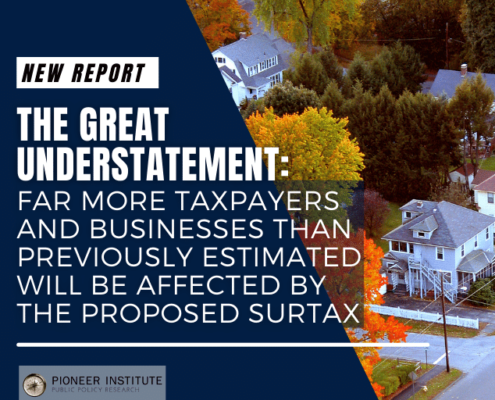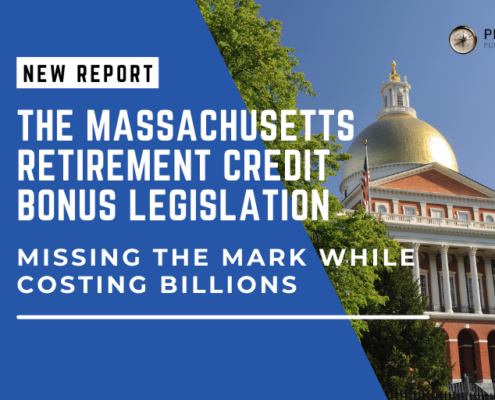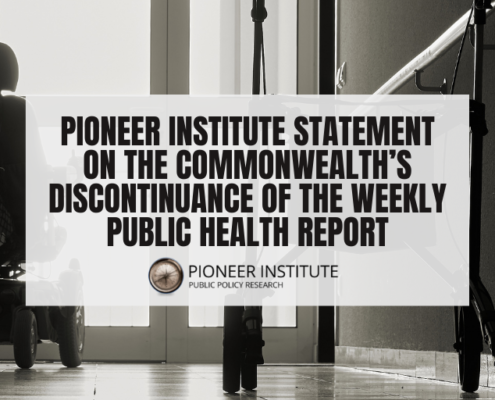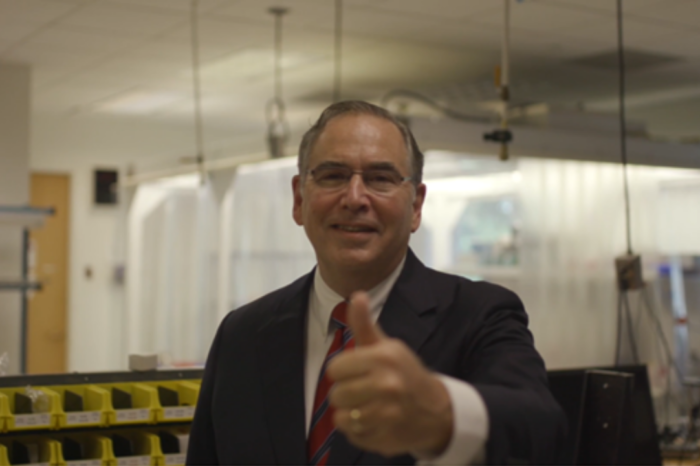Celebrating Leadership: Watch Pioneer’s video tribute to Stephen D. Fantone, former Board Chair
/in Featured, News /by Editorial StaffMany of you know that Pioneer Institute has recently announced a leadership transition regarding its Board of Directors. Stephen D. Fantone, who has served as Board Chair since 2012, has stepped down and passed the torch to Adam Portnoy, who will guide the Institute as it embarks on a new strategic plan, Pioneer2024. As we look forward to our future, we also reflect on our successes, and acknowledge the deep commitment and stewardship that Stephen has shown this organization for almost a decade as Chair and, for many years prior to that, as a Board member and supporter. Stephen will continue to be involved with Pioneer in a new capacity – stay tuned for more information!
We are proud to present a video tribute, below, in which we share with our community Stephen’s reflections on his involvement with Pioneer, along with heartfelt appreciation from an array of Pioneer Board directors and staff members. We hope you enjoy it!
Click on the image below to watch the video:
From all of us at Pioneer, and on behalf of our many supporters, thank you, Stephen, for your extraordinary commitment to this organization!
Learn about membership and giving opportunities with Pioneer!
Recent posts

Pioneer Supports Legal Challenge to Misleading Tax Ballot Language, Releases Video

Study Finds Massachusetts Would Benefit from Adopting Education Savings Accounts

Study Raises Concern That Annual T Fare Evasion Costs Could Rise By More Than $30 Million Under AFC 2.0

Study: Tax Up For A Vote In November Would Ensnare Over Three Times More Taxpayers Than Previously Estimated

Virtual Learning Grows During COVID

Pioneer Institute Files Amicus Curiae Brief in U.S. Supreme Court School Choice Case

The Promise and Challenges of Rare Cancer Treatments

Public Statement on Massachusetts High Technology Council’s Challenge to the Graduated Income Tax Ballot Language

Study: “Millionaire’s Tax” Would Have Far-Reaching Effects on “Pass-Through” Businesses

Study: Decline in Cardiovascular Health Screenings During COVID-19 Pandemic Poses New Public Health Threat

Study: Pandemic Pension Bonus Bills Would Cost Billions and Unfairly Favor Highly Compensated Public Employees

Study Warns that New Hampshire Tax Policies Would Exacerbate Impacts of a Graduated Income Tax

Pioneer Applauds MassDOT for Allston Project All At-Grade Plan

Study: After Years of Steady Increases, Homeschooling Enrollment Rose Dramatically During COVID

Study Finds SALT Deduction Cap, Graduated Income Tax Will Combine to More Than Double Tax Burden on Some Households

Pioneer Institute Statement on the Commonwealth’s Discontinuance of the COVID-19 Weekly Public Health Report

Study Suggests How to Advance Fairness, Predictability of “Payment in Lieu of Taxes” Programs Aimed at Nonprofits




